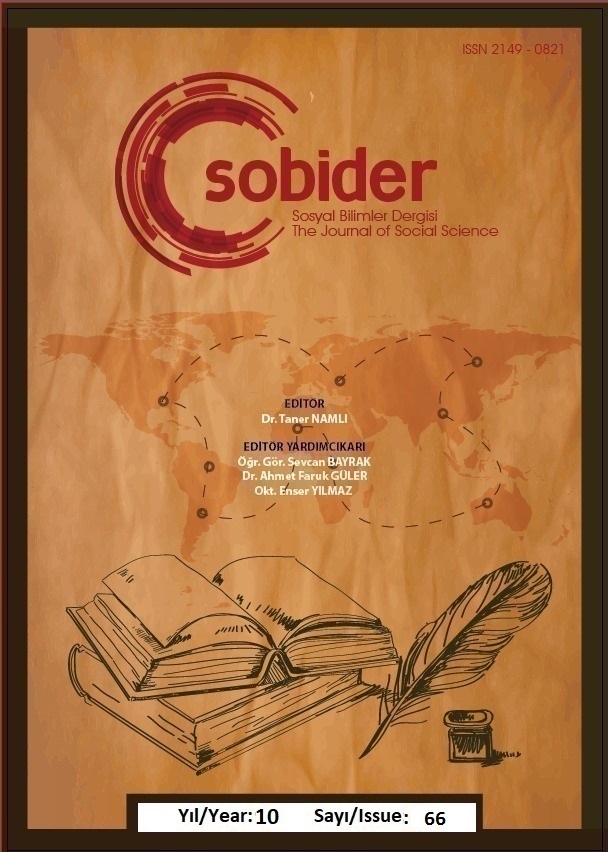Author :
Abstract
Değişime açık olan toplumlar, etraflarındaki diğer toplumların bazı kurumlarını, ihtiyaçlarına daha iyi cevap vereceği düşüncesiyle alabilirler. Osmanlı İmparatorluğu’nun uygulamakta olduğu kanunlar da tanzimat dönemi boyunca bu tür iktibasların konusu olmuştur. Bu iktibaslar, kısmen olabildiği gibi top yekûn bir alana ait hukuk sisteminin alınması ile de olabilmiştir. Çalışmamız; Osmanlı örfi hukukunun mahiyeti ve kanunlaştırma faaliyetlerinin kısa bir tarihçesini ele almayı amaçlamaktadır. Toplumların resepsiyon yolu ile hukuk düzenlerindeki değişimlerinin, kendi istekleri ile oluşundan ziyade bir ihtiyaç ve zorunluluk sebebiyle olduğu ortadadır. Osmanlı idarecilerinin batı hukukuna tamamen bağlanmak yerine kendi hukuk sistemlerini oluşturabilmeyi hedefledikleri düşünülmektedir. Devrin idarecileri; birtakım nedenlerle batı uygarlığının gerisinde kalmış olan Osmanlı İmparatorluğu’nun, aradaki açığını sanayiye ve ekonomiye büyük zararı dokunan kapitülasyonları kaldırmakla aşabilmeyi hedeflemişlerdir. Heterojen bir topluma sahip ve şer’î hukuk ile idare edilen imparatorlukta, yapmayı amaçladıkları değişimin istedikleri sonucu vermemekle birlikte daha sonra kurulacak olan yeni rejimin hareket alanını genişlettiği görülmektedir. Çalışmada; örfi hukukun mahiyeti ve kanunlaştırma hareketlerine sağladığı temel ele alınarak bu husustaki tarihsel süreç değerlendirilecektir.
Keywords
Abstract
Unstaid societies may take some institutions of other societies around them, thinking that they will better satisfy their needs. The laws enforcemented by the Ottoman Empire were also the subject of such citations throughout the Tanzimat period. These citations could be partially or by the acquisition of the judicial system belonging to a whole area. This work aims to discuss the nature of Ottoman customary law and a brief history of legalising activities. It is obvious that the changes in the legal order of the societies through the reception are due to a need and necessity rather than their own will. It is thought that the Ottoman administrators aimed to create their own legal systems instead of being completely connected to Western codes of law. The administrators of this period; aimed to overcome the gap of the Ottoman Empire, which had lagged behind in Western civilization for some reasons, by removing the capitulations, which caused great damage to the industry and economy. The Ottoman empire, which had a heterogeneous society, was governed by shari'a law, and although the change aimed by the reformers did not give the desired result, it is seen that the new regime that would be established later expanded the field of action. In this study; the nature of customary law and the basis it provides for enactment movements will be discussed and the historical process in this regard will be evaluated.





